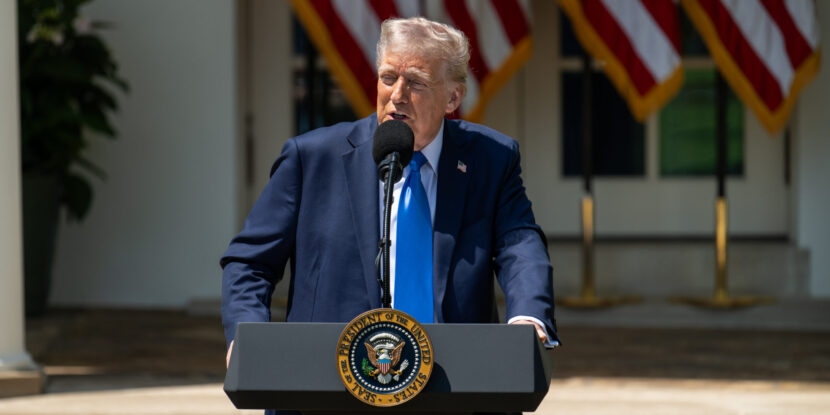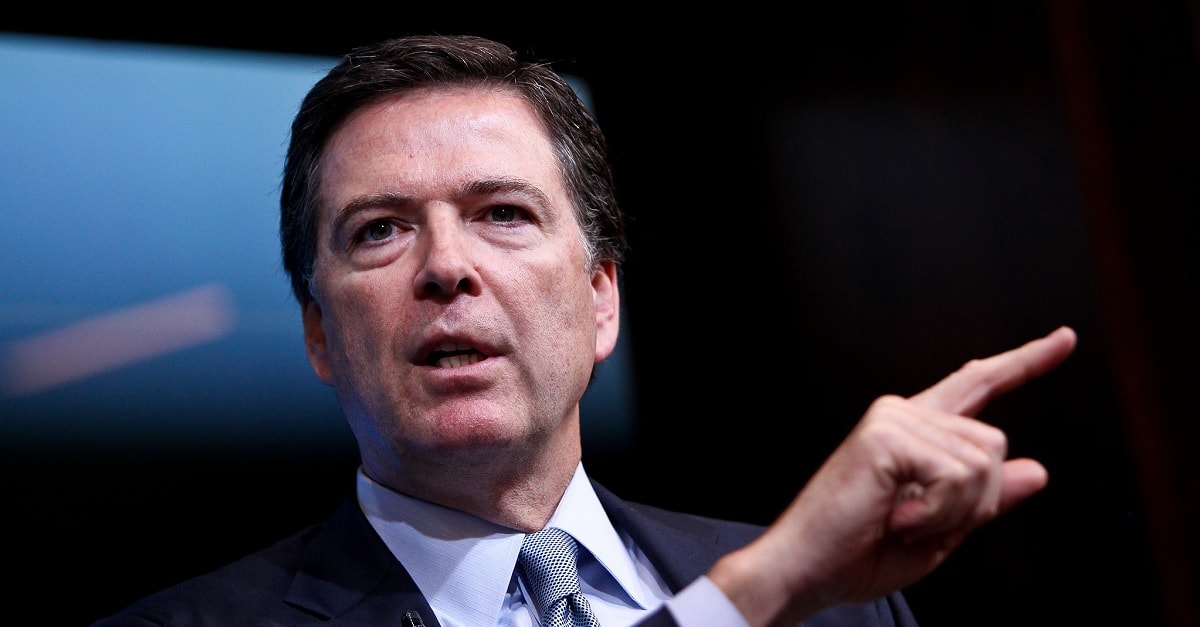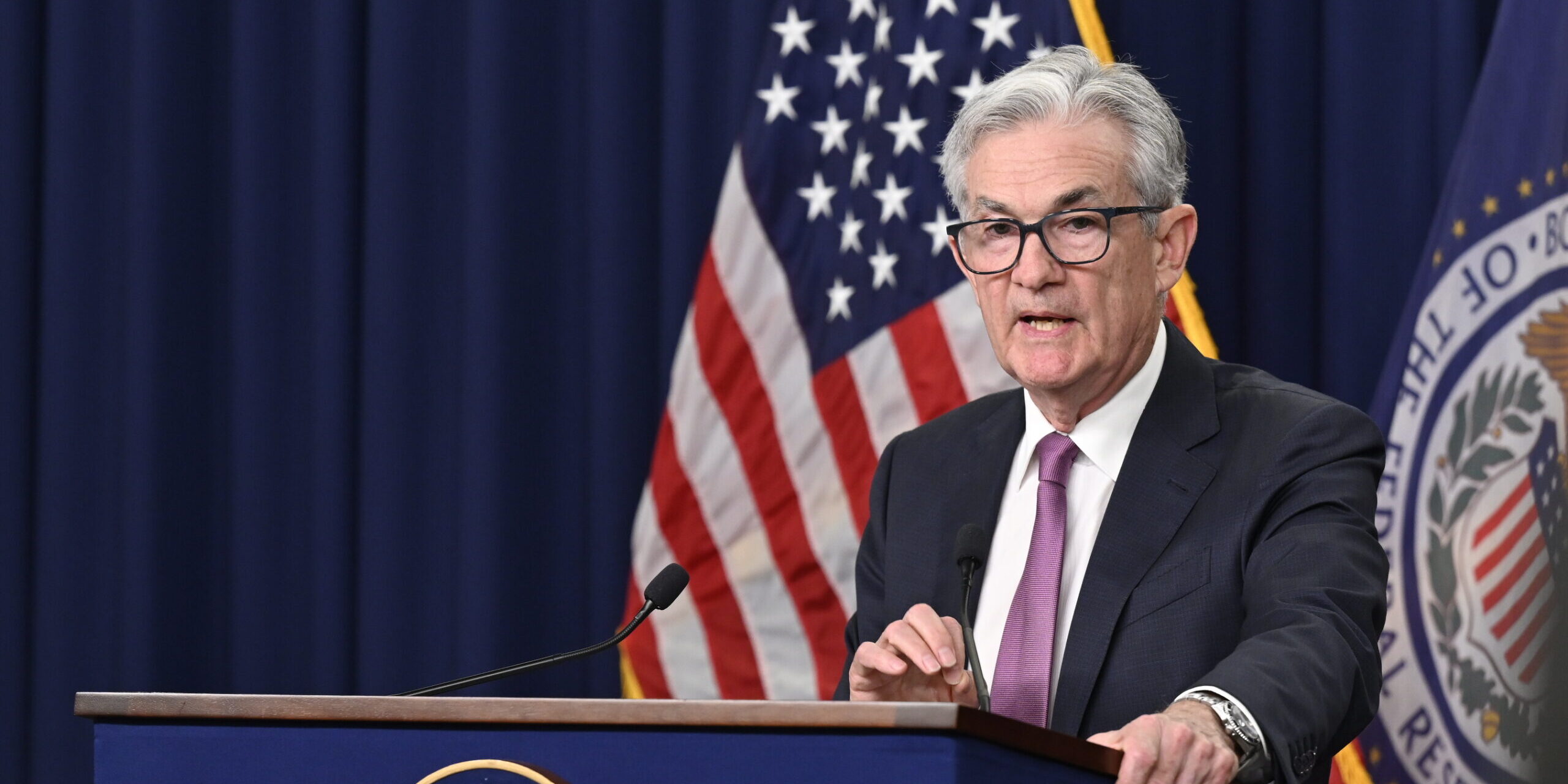
PULSE POINTS:
❓What Happened: President Donald J. Trump announced that his administration will inform U.S. trade partners as to what tariff rates their exports will face in the next several weeks.
👥 Who’s Involved: President Trump, Treasury Secretary Scott Bessent, Commerce Secretary Howard Lutnick, and leaders from the Middle East, the United Kingdom, China, and elsewhere.
Your free, daily feed from The National Pulse.
📍 Where & When: Abu Dhabi, United Arab Emirates; May 16, 2025.
💬 Key Quote: “We have 150 countries that want to make a deal—but you’re not able to see that many countries. So at a certain point over the next two to three weeks, I think Scott and Howard will be sending letters out essentially telling people—and we’ll be very fair—but we’ll be telling people what they’ll be paying to do business in the United States,” Trump said.
⚠️ Impact: The administration plans to dictate trade terms to numerous countries in the coming weeks, impacting global trade dynamics and continuing its ‘America First’ agenda.
IN FULL:
President Donald J. Trump announced that his Treasury Secretary, Scott Bessent, and Commerce Secretary, Howard Lutnick, will inform around 150 nations within the next month regarding the U.S. tariff rate on their exports. The comments were made early Friday morning on May 16, as President Trump departed Abu Dhabi—the final leg of his Middle East tour in which he secured more than a trillion dollars in investments into the United States.
“We just reached a fantastic trade deal with the United Kingdom. And we have another big one that we reached with China. At the same time, we have 150 countries that want to make a deal—but you’re not able to see that many countries,” Trump said shortly before he departed from the Middle East. “So, at a certain point over the next two to three weeks, I think Scott and Howard will be sending letters out essentially telling people—and we’ll be very fair—but we’ll be telling people what they’ll be paying to do business in the United States.”
Trump reiterated, “It’s not possible to meet the number of people who want to see us.”
Trump: And we have.. 150 countries that want to make a deal but you’re not able to see that many countries so at a certain point over the next two to three weeks… we’ll be telling people what they will be paying to do business in the United States. pic.twitter.com/iZdCfb8ksh
— Acyn (@Acyn) May 16, 2025
Shortly after announcing a 10 percent global tariff and even higher country-specific reciprocal tariffs in early April, the Trump White House moved to pause the trade duties after most nations around the world scrambled to open talks for bilateral trade agreements. While the higher reciprocal tariffs were set aside for 90 days, the 10 percent global tariff has remained in place for nearly every country that engages in trade with the U.S.
Last week, President Trump finalized a significant bilateral trade agreement with the United Kingdom—a deal that had been sought by the United States ever since Great Britain voted to leave the European Union (EU). Under the terms of the agreement, the United States has been given unprecedented influence over the United Kingdom’s supply chains, with provisions regarding ownership structure and security guarantees appearing to be targeted at excluding Chinese suppliers.
Meanwhile, earlier this week, the United States and China agreed to dramatically lower the trade barriers the two nations had erected against one another for 90 days. Under the agreement, U.S. tariffs on Chinese goods dropped from 145 percent to 30 percent, while China reduced its levies from 125 percent to 10 percent. The move aims to de-escalate tensions from the ongoing trade dispute.
While the renewed possibility of higher tariff rates on U.S. trade partners is likely to stoke a new round of market volatility, recent hard data has clearly indicated that the tariffs have had little to no impact on inflation and, in fact, appear to be deflationary.

PULSE POINTS:
❓What Happened: The Texas House advanced Senate Bill 17, which restricts land sales to individuals and entities from specific foreign nations deemed national security threats. The legislation’s House and Senate versions will now be reconciled before receiving final votes for approval in the state House and Senate.
👥 Who’s Involved: Governor Greg Abbott (R), state Senator Lois Kolkhorst (R), state Representative Cole Hefner (R), and members of the Texas legislature.
Your free, daily feed from The National Pulse.
📍 Where & When: Texas; preliminary approval in the House last week and reconciliation conferees appointed on May 14, with potential enactment on September 1, 2025.
💬 Key Quote: “As Senate Bill 17 has moved through the legislative process, we have taken the utmost care not to reduce the ability to buy property for those who have fled oppressive regimes and want to build an American life here. As the bill currently stands, those individuals who come here lawfully and remain here lawfully still have that opportunity,” says Rep. Hefner.
⚠️ Impact: If passed, the bill would restrict property purchases by individuals and entities from nations deemed security threats, with exemptions for lawful permanent residents.
IN FULL:
The Texas House of Representatives has advanced Senate Bill 17, a measure aimed at restricting land purchases by individuals and entities from countries identified as national security threats. The bill, originally filed by Senator Lois Kolkhorst (R), has undergone significant amendments in the House before receiving preliminary approval in an 85-60 vote. Differences between the legislative text approved by the House and Senate will now be reconciled by conferees appointed by each chamber before the bill receives final votes of approval and heads to Governor Greg Abbott (R-TX) to be signed into law.
If enacted, S.B. 17 would allow Gov. Abbott to determine which nations and entities will be deemed national security threats and face restrictions. Currently, the list includes China, Iran, North Korea, and Russia, as designated by the United States National Director of Intelligence.
After moving from the Senate, where the legislation was approved along a 24-7 vote, the text of S.B. 17 underwent a series of changes through amendments in the House. These changes included narrowing an exemption for leased property. While the Senate version exempted leases of under 100 years, the House limited this to leases of one year or less. Additionally, lawmakers amended the bill to exempt lawful permanent residents from the restrictions.
“As Senate Bill 17 has moved through the legislative process, we have taken the utmost care not to reduce the ability to buy property for those who have fled oppressive regimes and want to build an American life here,” the bill’s House sponsor, Representative Cole Hefner (R), told the media. He added: “As the bill currently stands, those individuals who come here lawfully and remain here lawfully still have that opportunity.”
Texas Democrats have attempted to portray the legislation as an attempt to strip property rights from immigrants, with far-left state Rep. Gene Wu (D) claiming the bill’s supporters are motivated by “hate.” According to data from the U.S. Department of Agriculture (USDA), Chinese investors currently own less than on percent of all foreign-held acreage in the United States. Combined, Russian, Iranian, and North Korean investors own fewer than 3,000 acres.
If the reconciled text receives final approval in both legislative chambers, the bill would take effect on September 1, 2025, applying to property purchases made after that date.
show less

 8 hours ago
2
8 hours ago
2








 English (US) ·
English (US) ·